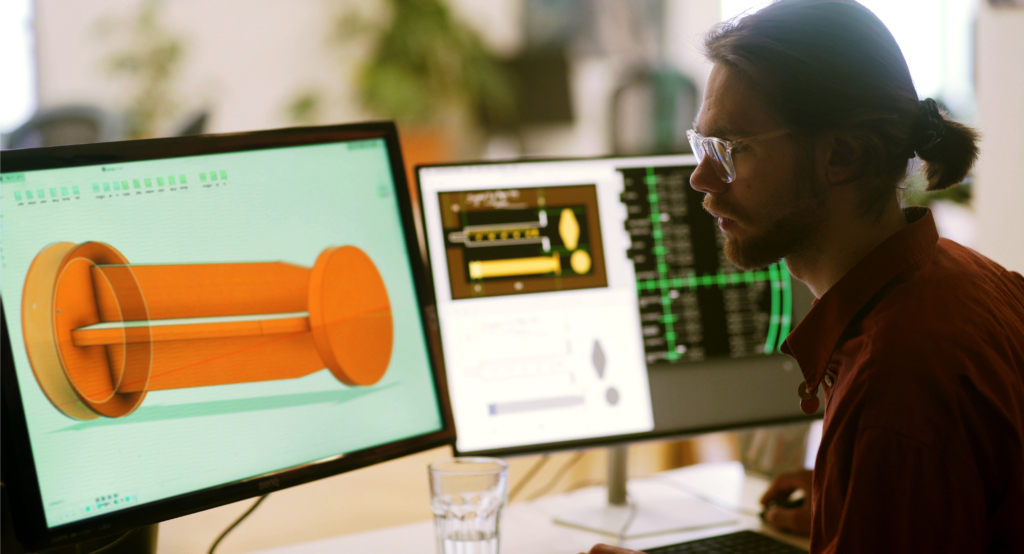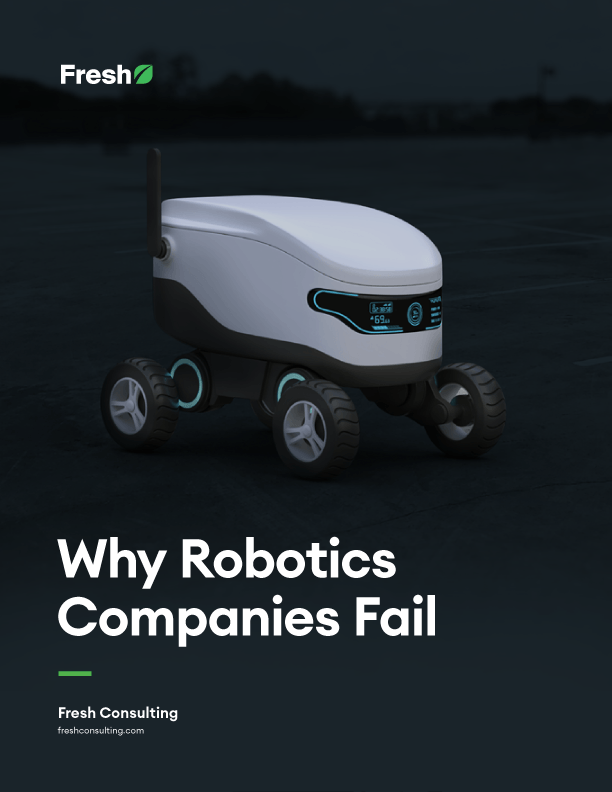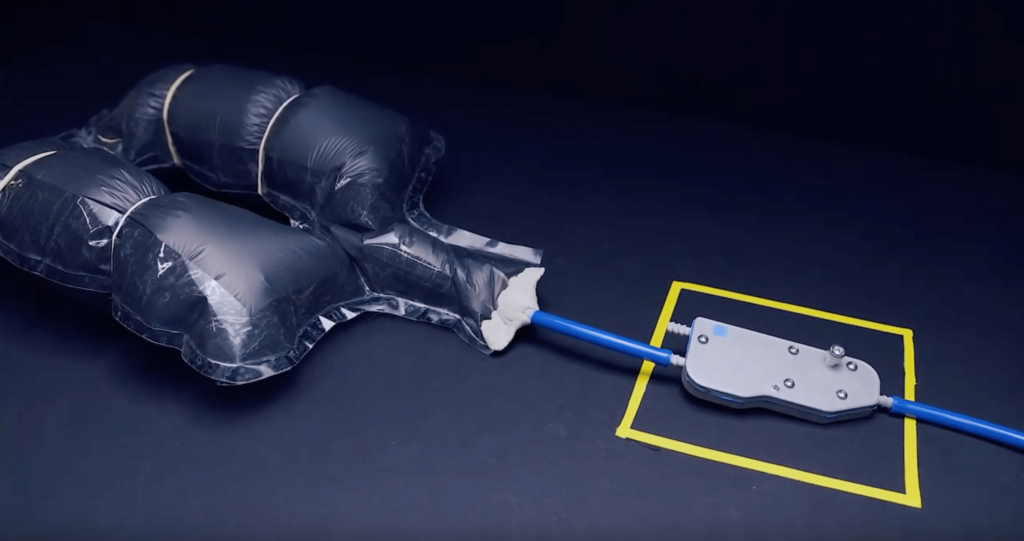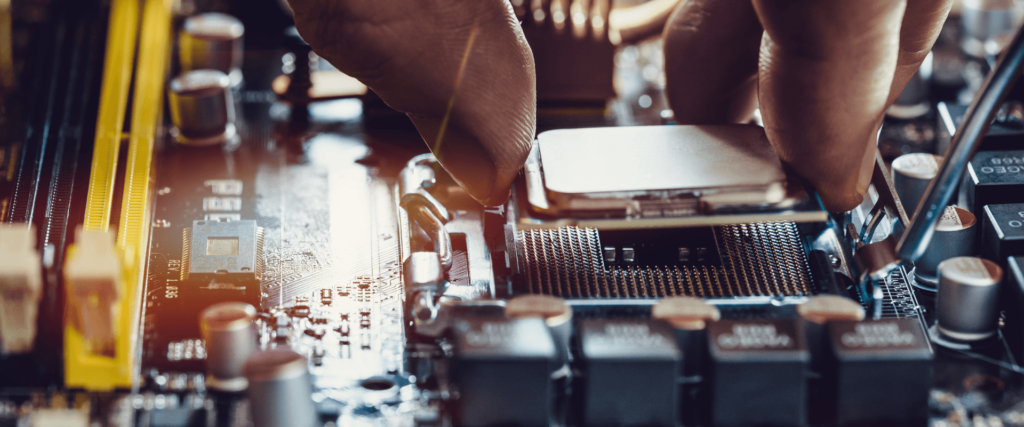Article
Hardware Engineering Terms: Part 3
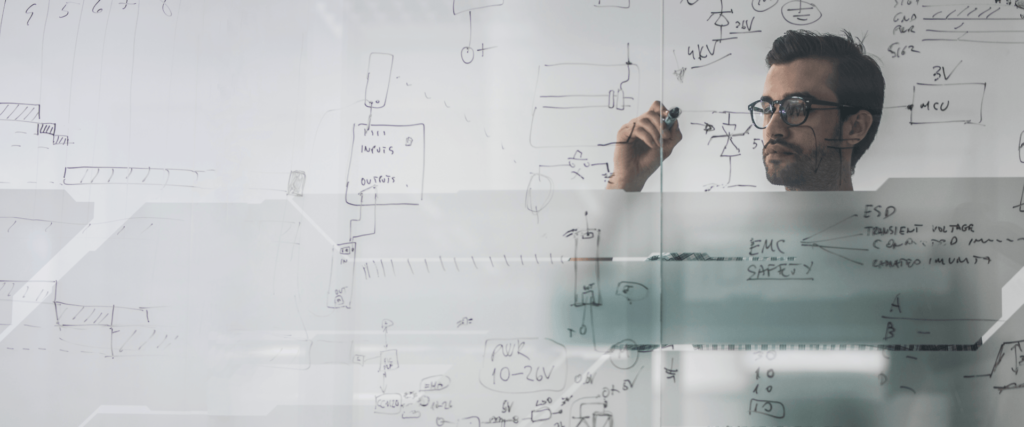
Knowing the basics of engineering terminology, knowing some of the people who carry out the craft is important. If you’re part of an engineering project, you’ll have conversations with engineers from diverse backgrounds and knowledge sets.
At any time, any of the following specialists could have valuable input into your project.

Electrical Engineer (EE): Professionals who design, build, and test equipment that uses electricity. This can include anything as small as a portable music player and range to something as complex as an electric motor or navigation system. (More from LiveScience)
Firmware Engineer: A type of software that provides low-level control of computer hardware. (More from Wikipedia)
Hardware Engineer: A professional who is responsible for researching, testing, and developing the physical components of computer systems. (More from Wikipedia)
Industrial Designer: A professional who designs the appearance and usability/functionality aspects of products. The role of an industrial designer is more technical and all-encompassing, and it may include a consideration of ergonomic factors, manufacturing techniques, choice of material, sustainability, and marketability. (More from Wikipedia)
Industrial Engineer (IE): A professional who focuses on factory layout, automation cost reduction, increase efficiency, and improved product quality. (More from LiveScience)
LabVIEW Developer: A professional who specializes in coding applications within the LabVIEW platform. This specialty commonly focuses on industrial and scientific testing and measurement automation. (More from Wikipedia)
Mechanical Engineer (ME): An individual who designs mechanical systems. They take into account the scientific concepts of motion, energy, and force as well as concepts from the material sciences. (More from the American Society of Mechanical Engineers)
Mechatronics Engineer: A professional working in the area of engineering dealing with objects in motion, who blends the principles of mechanical and electrical engineering with computer science. (More from the Institution of Mechanical Engineers)
Software Engineer: Someone involved in the development, testing, and maintenance of computer software. (More from Wikipedia)
Systems Engineer: A professional who oversees the life cycle of a complex engineering system. The systems engineer considers the project as a whole and directs how different engineered aspects fit together, partitioning the design to the various engineering disciplines and defining requirements and interfaces. (More from Wikipedia)
UI/UX Designer: UI design focuses on designing the interfaces people use to interact with a system, software or service, based on the evidence presented by user research. UX design focuses on the research-based design of a product or service to create a better user experience. The processes are often interrelated, and both are driven by research done to determine people’s needs when using the product. (More from Career Foundry)
Interested in learning more? Download our whitepaper, Your Guide to Engineering Terminology. Also consider checking out The Future of Workplace Automation, where we discuss how the craft of the individuals mentioned above will influence human/robot collaboration.

